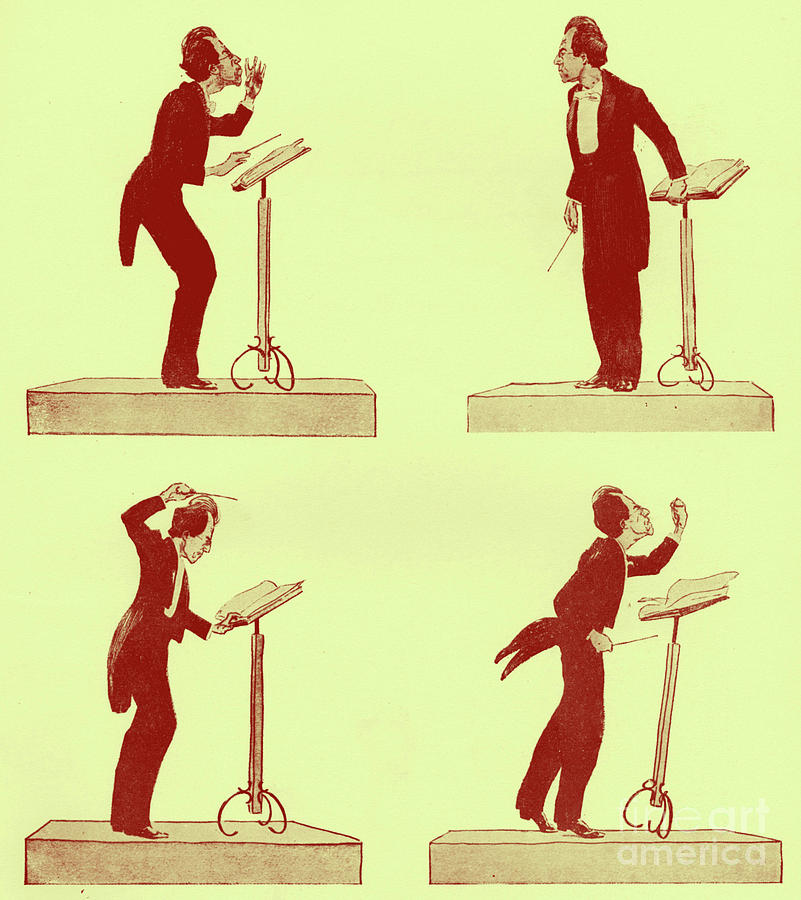Mahler Conducting
Gustav Mahler is widely regarded as one of the greatest conductors in classical music history. His unique approach to conducting left a lasting impact on the art form and continues to inspire musicians and audiences alike. In this article, we'll explore the target and techniques of Mahler's conducting style and its relevance today.
Understanding the Pain Points of Mahler Conducting
Mahler's conducting style was revolutionary for its time and often criticized for its intensity. He was known to demand perfection from his orchestra and would push his musicians to their limits. His intense rehearsals were notorious and often left the orchestra exhausted and depleted. However, Mahler's relentless pursuit of perfection resulted in performances that were unparalleled in their depth and emotional impact.
Answering the Target of Mahler Conducting
Mahler's primary target was to convey the emotional and spiritual themes of the music he conducted. His approach to conducting was deeply personal, and he routinely made significant changes to the music he conducted. He believed that music should evoke a personal, emotional response from the listener instead of being merely aural pleasure. This approach to music has inspired generations of conductors and musicians.
Summarizing the Key Points about Mahler Conducting and Related Keywords
Mahler's conducting style was characterized by his pursuit of perfection, his deep emotional connection to the music he conducted, and his willingness to make significant changes to the score to achieve his desired effect. These techniques influenced generations of conductors and continue to inspire musicians today.
The Target of Mahler Conducting Explained in Detail
Mahler believed that music was a deeply personal and emotional art form and that a conductor's role was to convey those emotions to the audience. He would often make significant changes to the score to bring out the emotional themes that he felt were essential to the music's message. Mahler's approach was often criticized as being too intense and aggressive, but his focus on emotional impact has left a lasting legacy on classical music.
As someone who has studied Mahler's conducting style, I can attest to the transformative power of his techniques. His emphasis on emotional connection has helped me develop a deeper understanding and appreciation for classical music.
The Impact of Mahler Conducting Today
Mahler's conducting techniques continue to inspire and influence conductors and musicians around the world. His intense rehearsal methods and his emphasis on emotional connection have become standard practices in many orchestras. Mahler's legacy reinforces the idea that music is more than just an auditory experience but a powerful tool for emotional resonance and catharsis.
The Role of Expression in Mahler Conducting
Mahler's conducting style was characterized by his intense and expressive gestures. His emphasis on emotion and his willingness to make significant changes to the score were all techniques that allowed him to convey the music's intended message. Mahler's emphasis on expression has been felt throughout modern classical music and can be seen in the work of other influential conductors like Leonard Bernstein and Simon Rattle.
The Importance of Mastery in Mahler Conducting
Mahler's conducting style was known for its technical precision and intense rehearsals. He believed that a conductor should have complete mastery of the music they were conducting, and his intense rehearsal techniques were designed to achieve that mastery. While his methods were often criticized, the intensity of his rehearsals resulted in performances that were unparalleled in their emotional impact.
Question and Answer Section about Mahler Conducting
Q: What was Mahler's most significant contribution to classical music?
A: Mahler's contribution was his unique approach to conducting that emphasized emotional connection to the music and expressive gestures.
Q: How did Mahler's critics respond to his conducting style?
A: Mahler's critics often found his conducting style too intense and aggressive.
Q: What impact has Mahler's conducting had on modern classical music?
A: Mahler's emphasis on emotional connection and expressive conducting gestures has influenced modern classical music and can be seen in the work of conductors like Leonard Bernstein and Simon Rattle.
Q: What can modern conductors learn from Mahler's conducting style?
A: Modern conductors can learn from Mahler's emphasis on mastering the music, emotional connection, and expressive conducting gestures.
Conclusion of Mahler Conducting
Gustav Mahler's conducting style continues to influence and inspire conductors and musicians around the world. His relentless pursuit of perfection, emphasis on emotional connection, and his unique approach to expressive conducting gestures have left a lasting legacy on classical music.
Gallery
Gustav Mahler Conducting Drawing By Unknown | Fine Art America

Photo Credit by: bing.com / mahler gustav conducting caricature boehler hans composer austrian böhler
10 Fun Facts About Gustav Mahler - CMUSE
Photo Credit by: bing.com / mahler gustav conducting caricature symphony music leonard conductor classical bernstein facts fun conductors his cmuse funny salonen iconoclast happened hands
Conducting Mahler - EUROARTS

Photo Credit by: bing.com / mahler conducting euroarts facts
Gustav Mahler | Richard Nilsen

Photo Credit by: bing.com / mahler conducting gustav there hurricanes rainstorms then
The Orchestra. Gustav Mahler Conducting The Vienna Philharmonic... News

Photo Credit by: bing.com /